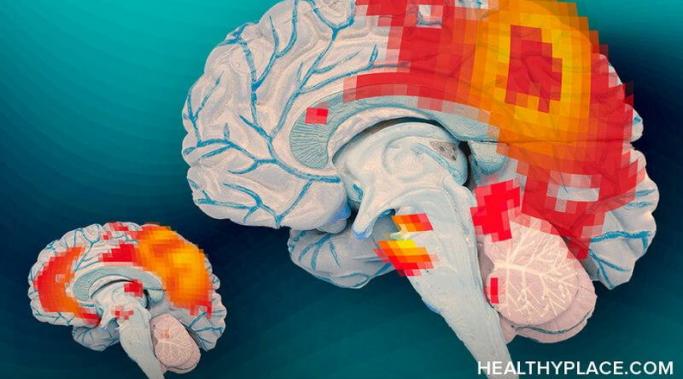Blogs
It seems unfair, to say the least, that when we are trying to recover from mental illness, our body can become ill as well. For a long time, I did not connect physical illness to mental illness. I believed the body and mind were separate.
I often found myself in my doctor's office. I told him I had migraines on a daily basis. He asked me if this had always been the case, and I told him no, just every few months. I get hit with serious sinus infections a few times a year, and curse my immune system. I am doing everything I should: eating healthy, exercising, taking my medication, and some vitamin's throw in for fun.
It took a long time to put the pieces together: mental illness causes unwanted physical symptoms, and not symptoms exclusively from psychiatric medication.
Two significant things have happened to me in this last year. I turned 50 and I began working with my own business/life coach. Both have me thinking more about where I am in my life and my work. What I want to change…what I am satisfied with. Up until about six months ago I had been fairly content with how I was serving the ADHD community. I had been specializing in working with people with ADHD for nearly nine years, I had established a good reputation, had steady referrals and was contributing to ADHD awareness in many ways. However, I had a gnawing feeling it wasn’t enough. There was more I could do…more people who I could reach and serve. But how?
About six months ago, I attended a conference where I met and committed to working with my new business coach… for an entire year! I wasn’t sure how I was going to pay for the coaching, or if I even had the time or energy needed to do so. However, I wanted to increase my ability to serve the ADHD community, and just “knew” the coaching program was the right choice to do that.
It was Halloween night, and I was dressed up in costume waiting my turn to read poetry in front of 40 patrons at a local coffee shop. Despite my anxiety, I knew I had a battle to fight. Five minutes remained, my palms were sweaty, but there was no turning back now. I got up on stage, and my first words were “Hello, my name is Dan Hoeweler and I am here tonight on a mission.” I then turned on my stereo system which blared scary music from the movie “Saw”, and began to read the following poem, inspired by my mental illness, schizophrenia, completely unsure how the audience would react. Watch.
"What I find most annoying about self-absorbed narcissists is they don’t spend nearly enough time thinking about me." Taz Mopula
In the fascinating world of mental illness and mental health one can always fan the flames of debate by throwing down this challenge: Can what we call “mental disorder” be the response of a healthy mind to a society that is, itself, not sane?
Recent decades have seen an alarming increase in the incidence of Attention Deficit Disorder (ADD). This leads the medical community to wonder - What were these folks called before the ADD diagnosis? Did the disorder even exist a century ago? Or, is ADD a mass response to cultural shifts de-emphasizing thoughtful deliberation in favor of superficial, trivial and constantly changing entertainment?
First of all, big congrats to my fellow Healthy Place bloggers Natasha
[caption id="attachment_396" align="alignleft" width="170" caption="thanks!"][/caption]
Tracy (Breaking Bipolar Blog) and Kendra Sebelius (Debunking Addiction blog) - we all received Web Health Awards for Summer/Fall 2011, and I'm proud to be here on HealthyPlace with them!
Meanwhile, in nearby NYC, the buzz is about this weekend's Marathon. On the way home from dropping Ben off at school this morning, I heard a news story about one runner whose motivation is this: his brother was murdered in a Queens home invasion in September and his mother is battling cervical cancer. Runner Sal Polizzi told WCBS reporter Marla Diamond, “You really can never pick up the pieces, but you do it as best as you can.”
This is true, too, for families dealing with mental illness.
My son struggles with moderate anxiety from time to time. In turn, I struggle with knowing how best to help him. After speaking with Susan Resko, former Executive Director of The Balanced Mind Foundation, I feel renewed gratitude for my comparatively much smaller-scale parenting struggles. Families raising children with mood disorders have a daunting task, but there is help available.
I've used abusive anger to attempt to get what I wanted from my abuser. But then I realized the abusive anger didn't end with him, but extended to my innocent children. Years ago, I promised my children that I would not yell and storm at them when it was time to do their chores. After a bit of trial and error, I successfully reigned in Mommy Mean. I felt relief when I no longer saw my boys' tear-stained faces staring at me in fear. I felt like I was a better person after taming my temper.
I recently learned that several friends of mine also are struggling with their eating disorders, and that it hurts even though I also have an eating disorder.
As someone recently said to me, Halloween should be a national holiday. It should be the "wear-something-fun-and-gorge-yourself-on-candy" day. It should be just a national day of fun when we're not supposed to be giving thanks or making love or hiding eggs. I could get behind that.
There are two reasons why Halloween is so fun:
1. You get to dress up and pretend to be someone else
2. You get to eat ridiculous amounts of candy and get a ludicrous sugar high
Well welcome to everyday bipolar disorder.
Making time for yourself, although not easy, makes all the difference when parenting a child with a psychiatric illness.





